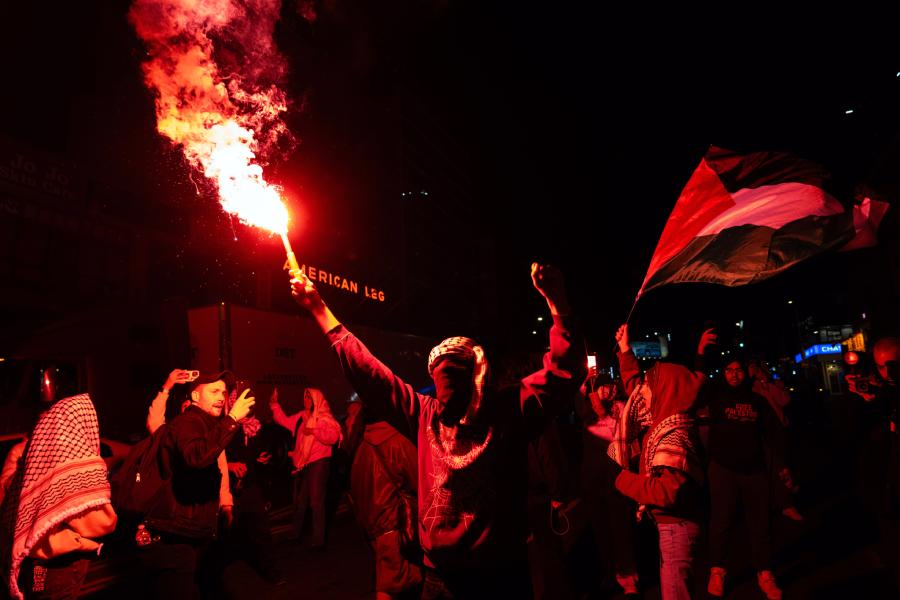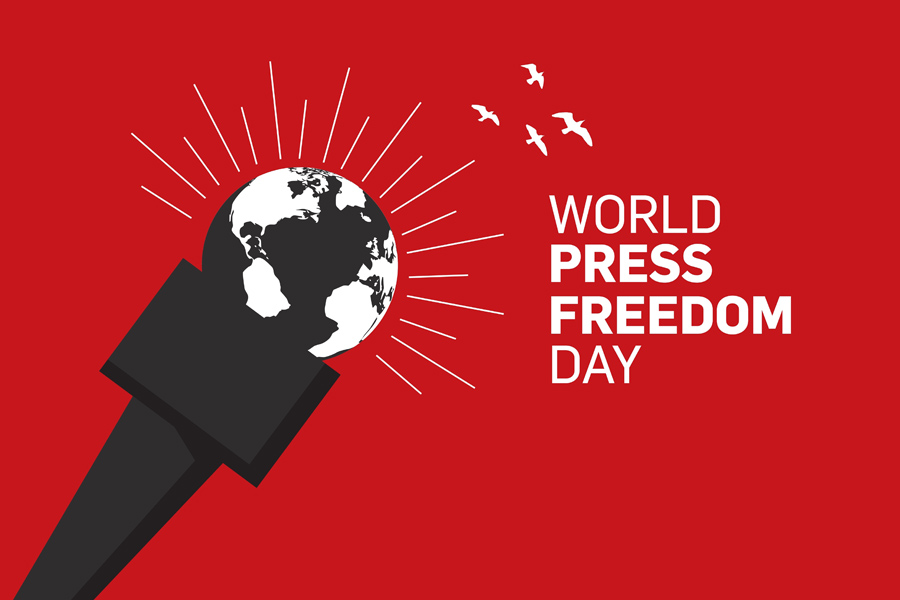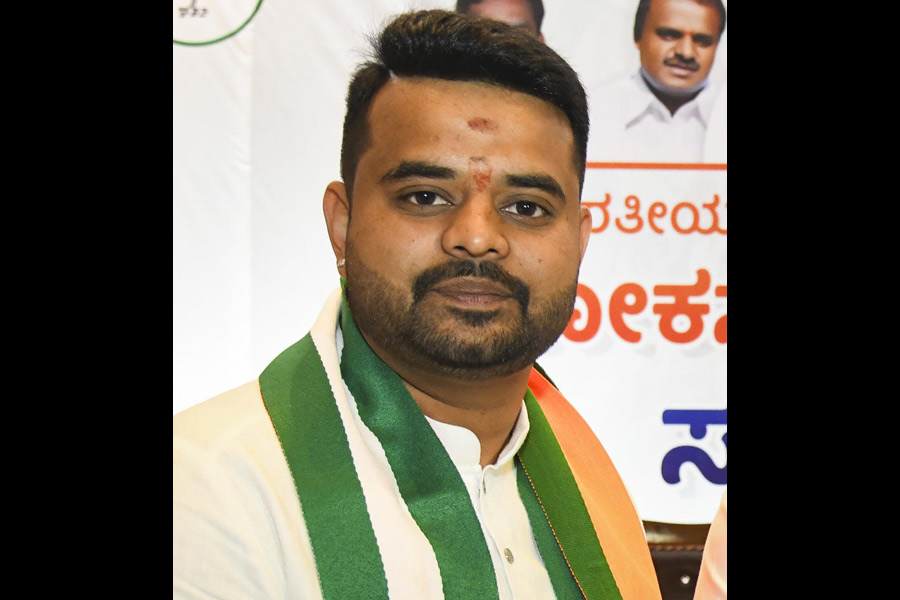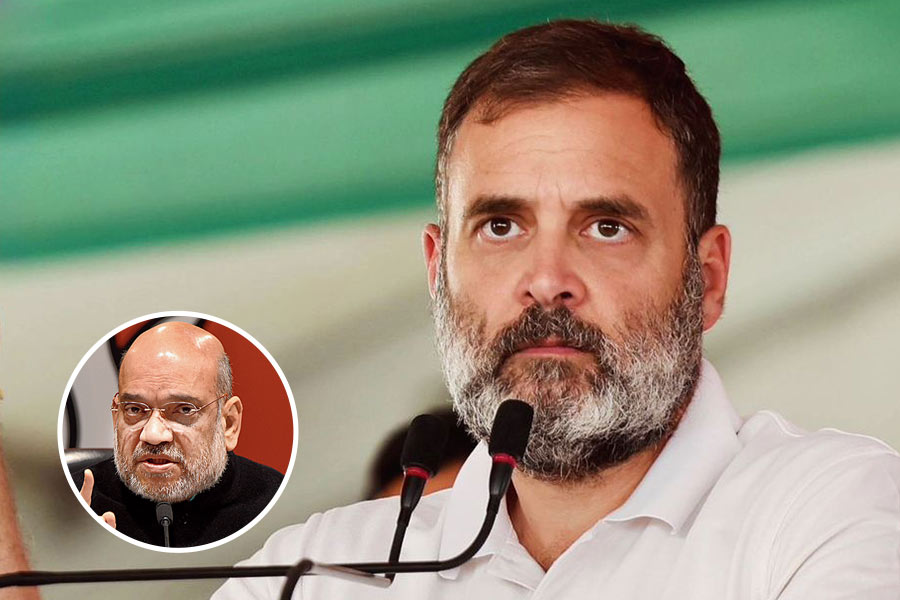A wave of pro-Palestinian protests spread and intensified Wednesday as students gathered on campuses around the country, in some cases facing off with police, in a widening showdown over campus speech and the war in the Gaza Strip.
University administrators from Texas to California moved to clear protesters and prevent encampments from taking hold on their own campuses as they have at Columbia University, deploying police in tense new confrontations that have already led to dozens of arrests.
At the same time, new protests continued erupting in places such as Pittsburgh and San Antonio. Students expressed solidarity with their fellow students at Columbia, and with a pro-Palestinian movement that appeared to be galvanized by the pushback on other campuses and the looming end of the academic year.
Protesters on several campuses said their demands included divestment by their universities from companies connected to the Israeli military campaign in Gaza, disclosure of those and other investments, and a recognition of the continuing right to protest without punishment.
The demonstrations spread overseas as well, with students on campuses in Cairo, Paris and Sydney, gathering to voice support for Palestinians and opposition to the war.
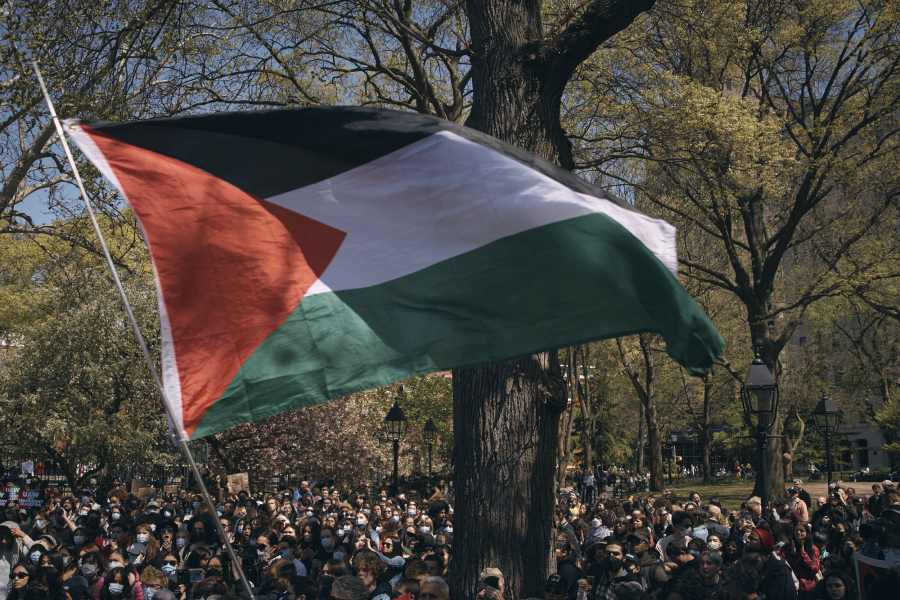
Students demanding a permanent ceasefire in Gaza demonstrate near New York University at Washington Square Park in Manhattan, Tuesday, April 23, 2024. Andres Kudacki/The New York Times
As new protests were emerging, the speaker of the House of Representatives, Mike Johnson, visited the Columbia campus in New York, where university officials were seeking to negotiate with protest leaders to end the encampment of around 80 tents still pitched on a central campus lawn.
Johnson said the school’s president, Nemat Shafik, should resign if she could not immediately get the situation under control, calling her an “inept leader” who had failed to guarantee the safety of Jewish students.
The speaker said that there could be an appropriate time for the National Guard to be called in, and that Congress should consider revoking federal funding if universities could not keep the protests under control.
Republican lawmakers have accused university administrators for months of not doing enough to protect Jewish students on college campuses, seizing on an issue that has sharply divided Democrats.
Some of the campus demonstrations that have taken place since the war began last year have included hate speech and expressions of support for Hamas, the armed group based in Gaza that led the deadly attacks on Israel on Oct. 7, sparking the war that has left more than 34,000 people dead in Gaza, according to the Gaza Health Ministry.
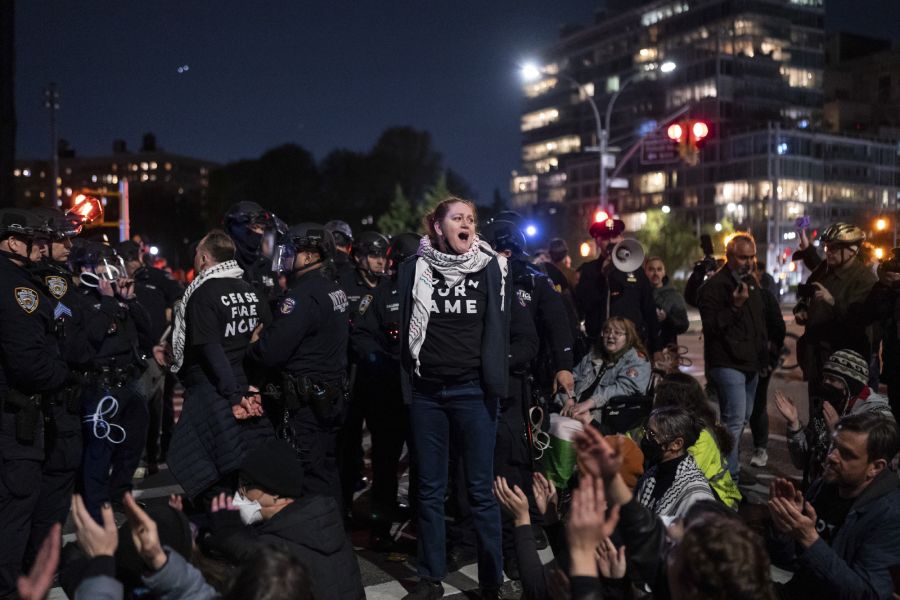
NYPD officers arrest members of Jewish Voice for Peace who had blocked an intersection in the Brooklyn borough of New York on Tuesday, April 23, 2024. Adam Gray/The New York Times
One of the biggest new protests Wednesday was in Texas, where dozens of police officers, many of them in riot gear and some of them on horseback, blocked the path of protesters at the state’s premier public university, the University of Texas at Austin. At least 34 people were arrested after refusing to disperse, according to a state police spokesperson.
Gov. Greg Abbott said that arrests there would continue until the protesters dispersed. “These protesters belong in jail,” he wrote on the social media platform X. “Students joining in hate-filled, antisemitic protests at any public college or university in Texas should be expelled.”
Hours earlier, at the Dallas campus of the University of Texas, a large group of student protesters briefly staged a sit-in near the office of the university president, demanding divestments. The students left after the president agreed to meet with them.
At the University of Southern California in Los Angeles, police moved in just before lunchtime to break up an encampment of about 100 pro-Palestinian protesters at the center of campus. As demonstrators chanted, “Shame,” officers tackled at least one protester and put that person into a campus police car, but the protester was later released.
Claudia Galliani, 26, a master’s student in public policy at USC, said she was protesting “to stand in solidarity with the students of Columbia and other campuses across the states who are receiving brutality due to their advocacy for Palestine.” She said that the protesters had been ostracized and accused of antisemitism.
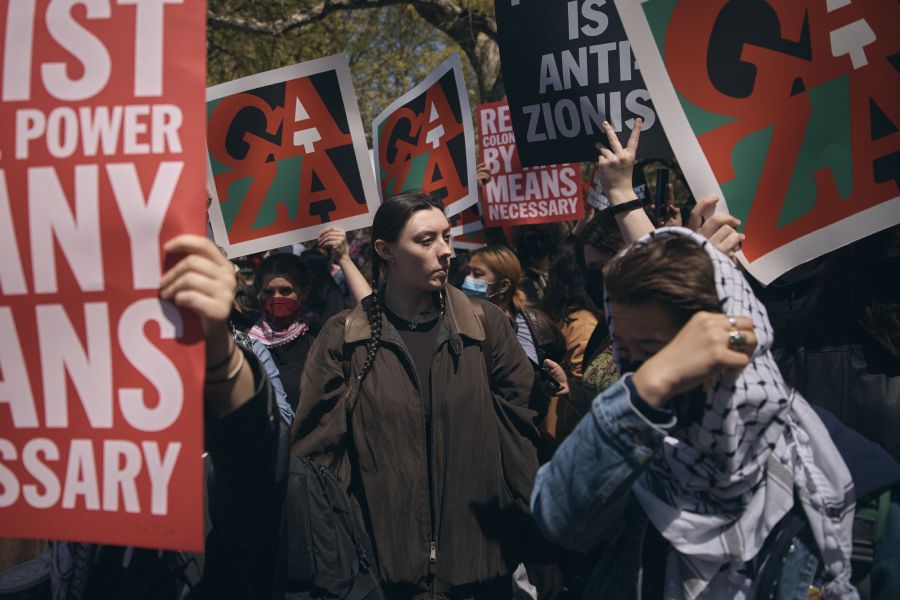
Students demanding a permanent ceasefire in Gaza demonstrate near New York University at Washington Square Park in Manhattan, Tuesday, April 23, 2024. Andres Kudacki/The New York Times
Many USC students were angered at the cancellation of a commencement address by valedictorian Asna Tabassum, who is Muslim, after complaints from groups on campus that cited her support on social media for Palestinians.
“I think universities don’t want what’s happening on the East Coast to spread to the West Coast,” said Maga Miranda, a doctoral student in ethnic studies at the University of California, Los Angeles who joined the protest at USC.
Protesters returned later in the day, but the university prevented, for the moment at least, a permanent encampment from being established, as the tents that had been forcibly removed in the morning were not reerected.
Just before 6 p.m., Los Angeles Police Department officers ordered them to disperse and threatened them with arrest and expulsion from school. Many protesters moved outside of a police perimeter, but more than two dozen locked arms in the middle of the campus quad, some holding Palestinian flags.
Officers later arrested between 25 and 30 protesters, according to Sgt. Scott W. Wilhelm of the LAPD.
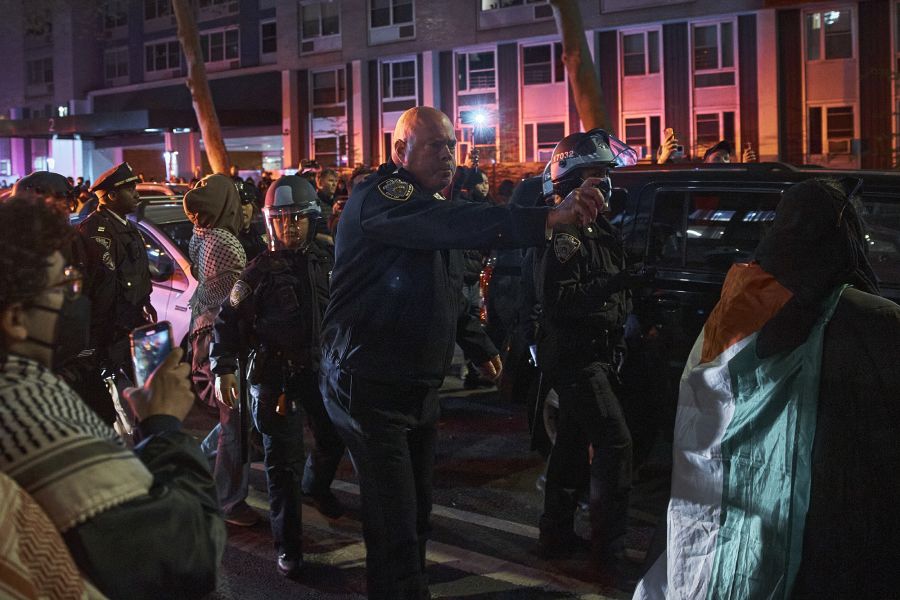
A police officer uses pepper spray on pro-Palestinian protesters at New York University in Manhattan, Monday night, April 22, 2024. Andres Kudacki/The New York Times
At Brown University in Rhode Island, scores of students pitched tents on the campus’ Main Green on Wednesday. Organizers said their minds were on the children and students in Gaza, not on the administration’s warning that the new encampment violated university policy. They promised to stay until they were forced off.
Administrators at Harvard University sought to head off a similar scene by shuttering Harvard Yard, a central gathering place on campus. But students flooded the yard’s grassy patches anyway on Wednesday, rapidly erecting tents as part of an “emergency rally” against the suspension of a pro-Palestinian campus group.
At Cal Poly Humboldt in Arcata, California, administrators said they were shutting down the campus through the weekend, concerned that protesters occupying two buildings could spread to others.
Late Tuesday, two students were arrested at Ohio State University, school officials said, during an on-campus protest that had since dispersed.
The protests at the University of Texas at Austin were among the first to take place in a Republican-led state in the South, occurring within walking distance of the governor’s mansion. Like other Republican political leaders, Abbott has been outspoken in his support for Israel, and last month, he vowed to fight any antisemitism on campus.
University leaders Tuesday said they had revoked permission for a protest and warned those who might seek to gather anyway.
“The University of Texas at Austin will not allow this campus to be ‘taken,’” two administrators from the Office of the Dean of Students wrote in a letter to the Palestine Solidarity Committee.
State police were deployed to the campus Wednesday at the request of the university and at Abbott’s direction, said the state police spokesperson, Ericka Miller, “in order to prevent any unlawful assembly.”
When protesters began to congregate despite the warnings, the response was swift. Scores of officers formed crowd-control lines, some clutching batons. After having ordered the protesters to disperse, some officers surged into the crowd and hauled several people away, then returned for others.
“Let them go!” some people shouted as the crowd grew.
At one point, hundreds of students and their supporters were gathered on the south mall of the campus, including some who gathered in a large circle and chanted, “Pigs go home!” Soon, the police moved in again, pushing through the crowds and making further arrests.
Miller said the majority of those arrested were charged with criminal trespassing.
In a statement, the university’s Division of Student Affairs said that the university would not tolerate disruptions “like we have seen at other campuses” and would take action to allow students to finish their classes and final exams “without interruption.”
The New York Times News Service

